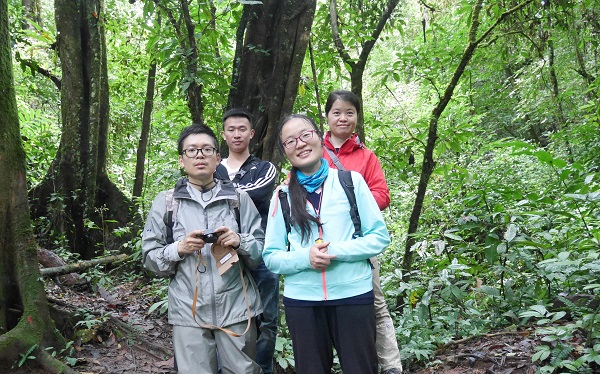Dr. Kiyotaka Hori from Makino Botanical Garden, Japan visited XTBG during November 21-28. He was invited byPI of Macroevolution Research Group of the Center of Integrative Conservation, XTBG, CAS. The main aim of Dr Hori’s was to establish research collaborations to improve our understanding of the conservation of fern diversity occurring in SE Asia On November 24, Dr. Kiyotaka Hori presented in the XTBG Seminar with title of “Reticulate evolution maintaining original genome constitutions in the Dryopteris varia complex” which elucidated the importance of apomixis and gesticulate evolution as evolutionary mechanisms in the assembly of derived fern diversity. This was illustrated by presenting new result of the Japanese occurrences of the Dryopteris varia complex. His topic aroused much interest among the audience. During his stay in XTBG, all team members of Macroevolution Research Group, especially Dr Chang Yanfen and Phd student Chen Chichuan, gave him a warm reception and showed him around the Garden and ecosystem field research stations in Menglun and Bubeng, Mengla County. The discussions focused especially on the exploration of opportunities to establish a collaborative research program aiming to resolve apomictic fern species complexes occurring in Southwest China and adjacent regions. Dr. Kiyotaka Hori obtained his PhD degree in 2017 at Tokyo Metropolitan University in Japan in 2017. He is now working as researcher in Makino Botanical garden. Dr Hori’s research is focused on the evolutionary history shaping the diversification of lineages in which apomixis and reticulate evolution are arguably major mechanisms, such as Dryopteris varia complex. His research includes studies of species complex in several derived genera such as Cyrtomium, Diplazium, Dryopteris and Hymenasplenium. 
Dr. Kiyotaka Hori with team members of Macroevolution Research Group at Bubeng filed station. |

